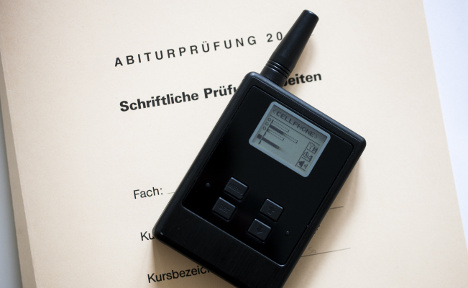Cheating on tests is as old as examinations themselves. But while the grandparents of today’s Abi students used a cheat sheet under a skirt, a book in the bathroom, or simply copied from a neighbouring student, today’s kids rely on smartphones.
Mobile phones are forbidden in the testing areas and even a phone that has been shut off – but kept in a student’s pocket – can be enough to accuse a student of trying to cheat.
A school near Cologne is trying to weed out cheaters by using a cellphone detector device. Last year a student who had copied information from the internet onto his phone was caught.
Other students blew the whistle on him. They did not reveal his name, but the school compared the texts of the entire class with those in the internet and the cheater was caught.
After that a physics teacher got the idea of using the cellphone detector device, according to the school’s director, Angelika Schmoll-Engels, who told the Kölner Stadt-Anzeiger that the tests are more secure now.
Detection devises are more the exception than the rule. The Education Ministry in the northern city of Kiel doesn’t believe there is a legal basis for them. Two cellphone detection devices that were in use have since been taken out of service.
Other school districts don’t see the need for combatting cheating with high tech devices. At a Catholic high school in Cologne two girls who relied on their smartphones to cheat were caught. One of them hid her flat screen smartphone in a book – but it was discovered by a test observer. Both girls received a zero for the test.
“We don’t rely on equipment. We watch very carefully what goes on,” said the school’s director, Monika Burbaum.
Students and teachers agree that most of the cheating efforts take place leading up to the Abitur exam – and not at the test itself.
“It’s much more difficult during the Abi test,” said Peter Silbernagel, a Düsseldorf teacher. “There are even observers in the bathrooms.”
DPA/mw



 Please whitelist us to continue reading.
Please whitelist us to continue reading.
Member comments